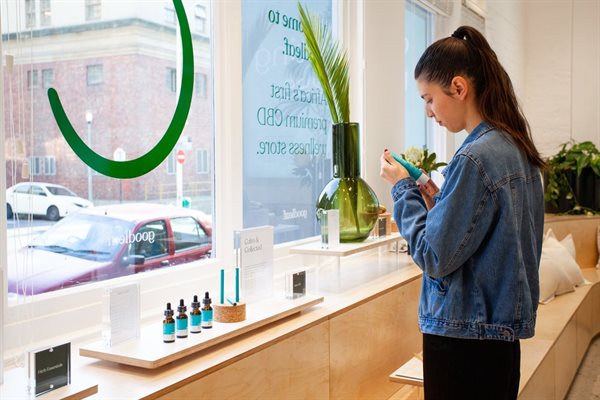“Now that the personal use of cannabis is finally legal in South Africa, consumers are starting to warm to the idea of CBD, but are naturally very cautious,” explains Jonathan Katz, CEO of premium CBD brand Goodleaf.

CBD (Cannabidiol) is a natural chemical compound extracted from the Cannabis plant and is said to produce numerous positive effects for health and wellness, including pain relief, aiding in sleep and easing anxiety, and studies have proven its efficacy as an anti-convulsant treatment for epilepsy in both people and pets. CBD is non-intoxicating and will not result in the "high" that is commonly associated with fellow cannabis compound THC (tetrahydrocannabinol).
According to Goodleaf, the health benefits associated with CBD is part of the reason why the CBD market is booming: A 2019 CBD market report by Brightfield predicts the industry will reach $22 billion in the near future. This potential economic market is why in 2019, Finance Minister Tito Mboweni, in his budget speech identified cannabis as a potential key sector to drive the economy and create a new job market in South Africa.
Katz advises that all CBD consumers should ensure their products are transparently sourced from reputable brands, with the legally acceptable levels of THC.
“If CBD is not purchased from a brand that is reputable, consumers stand the risk of ingesting contaminants which would negate the many positive health benefits associated with CBD. It’s also important that products contain the legal limit of THC to be complaint with South African regulations,” he says.
Katz shares the following tips to ensure that shoppers select high-quality CBD products:
1. Independent testing: If the product has been tested by a third-party laboratory, the results should be available to you as a consumer. These are key for you to gain knowledge of the CBD oil’s content, compare it against what has been advertised and check for contaminants. Reputable CBD products should have Certificate of Analysis by a third-party laboratory, such as those available on request for all Goodleaf products.
2. Legal limit: All products sold in South Africa should be in line with legislation and contain less than 0.001% THC. In many global markets, the accepted threshold is 0.3%, indicating that South African legislation is more conservative than most.
3. On the inside: The ingredients of the product should be on the label and this provides an opportunity to look up any compounds you are unfamiliar with.
4. The source: Knowing where and how the hemp from which the CBD was extracted will go a long way to understanding what’s inside the product. Ask for the CBD’s origin to establish if it was grown to industry standards at accredited farms and look for pesticide and GMO-free products.
“Quite simply, the more you know about where a product comes from, the more you’ll inherently trust a brand and a supplier. Traceability is a concept that’s gaining momentum in all cannabis-derived products. It’s just one way to ensure consistent health and safety standards in the industry,” concludes Katz.